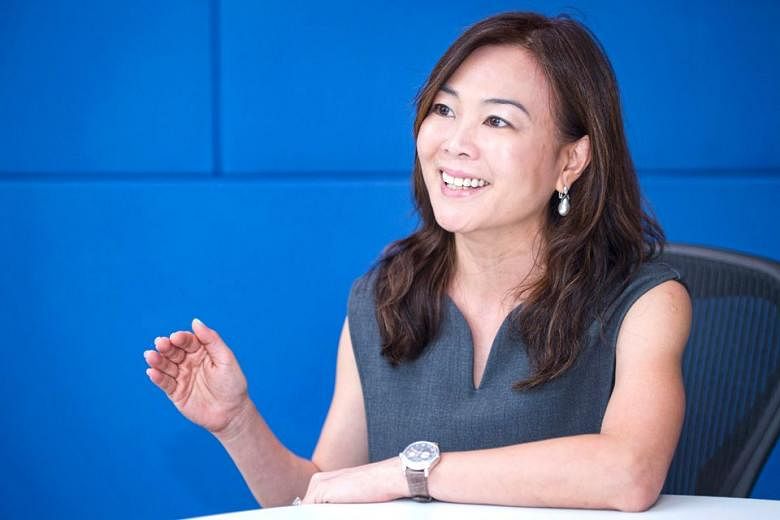SINGAPORE (THE BUSINESS TIMES) - Grab has snagged a top corporate executive from payments giant Visa to steer the ride-hailing company's payments business, in a move that shows its resolve to stay ahead in the business, The Business Times has learnt.
Grab's catch is Visa Singapore's country head Ooi Huey Tyng, who is hired to run GrabPay's business in Singapore, Malaysia and Thailand. Ms Ooi, a veteran in the payments business, is expected to start her new job early next year.
She has been running Visa's Singapore and Brunei business for more than five years and spent about a decade at major consumer banks building the various card payments business.
She was also among several bankers who tried building a fintech firm - way before the word even came to being - just before 2000, but the venture was hit by the dot-com crash.
In an interview with BT published this month, she argued that the idea of having incumbents just protecting existing profit would not be a viable business model in the days ahead, as the digital economy allows technology to bring down barriers of entry. "There's no concept of a captive audience," she had said. "This concept will be obsolete. The key is that we solve from the pain point to differentiate ourselves."
Grab declined comment when contacted.
The high-profile hire came as analysts have begun to see Grab's potential to gain traction in the usage of its mobile wallet. Said Michael Yeo, IDC research manager: "Grab's sheer scale in its user numbers is what instantly makes it a potential formidable player in the payments field."
He noted that Grab has a presence in all the major markets in South-east Asia and can more easily convert its existing user base into payments users, since it already has a large chunk of its users storing payment details within the app.
"For their wallet tool, hawkers and smaller retailers will most likely be their target market in Singapore. Such retailers rarely have card acceptance capabilities due to the fees and costs associated with them," Mr Yeo said.
"Grab can come in and offer a lower-cost alternative for electronic payments that does not rely on cards and requires minimal investment on the retailers' part," he added. "These are venues where small amounts of cash are being frequently exchanged and are exactly where mobile payments in China have become so popular."
About 1,000 merchants in Singapore are expected to accept GrabPay by end-2017. Grab also plans to target about 20,000 merchants here who mainly transact in cash.
But Forrester analyst Ng Zhi Ying noted that like other digital wallets, Grab still faces a number of hurdles. They include consumer uptake and merchant adoption, creating network effects to reach critical mass faster and convincing consumers and merchants that its new system is a clear improvement over existing payment methods, or is better than those of its competitors.
Nets - the payment services group owned by DBS, OCBC and UOB - said this month it will invest some S$30 million to launch a unified e-payments platform in Singapore. It will waive all terminal and transaction fees for hawkers for three years and speed up payments settlement so that merchants can get sales proceeds on the same day, sooner than the current one-day wait.
The attention given to digital wallets and cashless options has reached new highs in Singapore, as the city-state ramped up campaigns to persuade consumers and businesses to wean off cash. On average, 30 per cent of transactions in Singapore are still done in cash. There is also an over-reliance on cheques, with 51 million cheques involving S$524 billion issued by businesses and the government in 2015 alone.
Even gaming company Razer's CEO Tan Min-Liang has been caught up in the go-cashless move, leading him in August to take up Prime Minister Lee Hsien Loong's challenge to produce a single e-payments system. Razer has put up a short proposal online and committed S$10 million in seed funding to the project.
IDC's Mr Yeo said: "Competition is heating up rapidly and there may well be some level of consumer fatigue or disinterest in payments due to this."
While it's unlikely that mobile payments will totally displace cards in Singapore, he said the real potential for Grab and other mobile wallet systems is in emerging markets where card penetration is low.
"Grab will likely quickly adopt its learnings from the Singapore market in order to tackle these new challenges," Mr Yeo said.

